Ranking The Films Of Christopher Nolan: Detectives, Deception And Demons
"I think audiences get too comfortable and familiar in today's movies," said writer/director Christopher Nolan in 2002. "They believe everything they're hearing and seeing. I like to shake that up."
In nine films, Nolan has crafted a mathematician's approach to luring audiences into realities only to question their very makeup. The films invariably follow similar characters: white guys of middle-age who have been deprived of family by violent means. These men deny truths about themselves and/or struggle to connect with the people closest to them. The term "auteur" is debased and often justly dismissed, but Nolan is one of the few who might earn the term — and even then there are big influences to factor in, such as his brother Jonathan Nolan, working partners David Goyer and Wally Pfister, and most importantly his wife and producing partner Emma Thomas.
On the eve of the release of Nolan's latest film Interstellar, we've taken a look at it along with the other eight feature films that make up the bulk of his work. Read on for one examination of the films and find out how Christopher Nolan films ranked amongst his filmography.
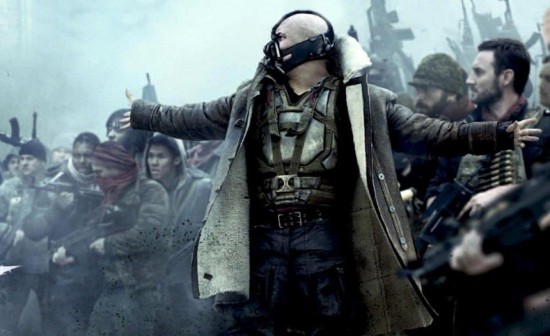 9. The Dark Knight Rises (2012)Screenplay by Jonathan Nolan and Christopher Nolan; based on a story by Christopher Nolan and David S. Goyer
9. The Dark Knight Rises (2012)Screenplay by Jonathan Nolan and Christopher Nolan; based on a story by Christopher Nolan and David S. Goyer
Nolan's third Batman film hangs on a few big hooks: the spectre of Bane, the weariness of an emotionally wounded and physically battered Bruce Wayne, and the fragile social stability earned by obscuring truths in Gotham. But while the masked Bane might work as a metaphor he's exactly the opposite of the Joker when it comes to drawing us in — muffled and obscured, the role all but negates the powerful magnetism of actor Tom Hardy. Where The Dark Knight strides confidently, this sequel often feels thin and labored.
The machinations of Bane, Talia Al Ghul and the League of Shadows are dull, and Selina Kyle is a mismatch between script and actor. Most significantly, the director who had somewhat slyly embedded politics into the Batman films (through a concept of the relationship of fear to social order) stumbles with the tone-deaf segments featuring occupied Gotham. The film doesn't actually mock the Occupy movement and position Batman explicitly as a tool of the 1%; it just seems to, which is actually worse.
And yet for simple entertainment, there's good material here. The Dark Knight Rises has effective humor and moments that genuinely connect. The technical craft is on point, and even a different ADR technique might have rescued Bane. Yet as a follow-up to The Dark Knight this is a muddled and messy step down.
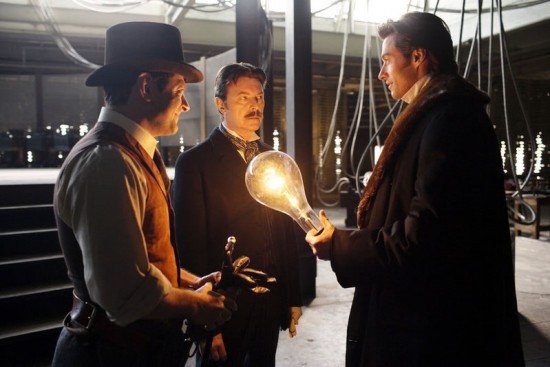 8. The Prestige (2006)Screenplay by Christopher Nolan and Jonathan Nolan, based on the novel by Christopher Priest
8. The Prestige (2006)Screenplay by Christopher Nolan and Jonathan Nolan, based on the novel by Christopher Priest
Nolan's most cynical film seeks to dazzle us with magic and illusion and the allure of a look behind the curtain. In truth, it coddles the lies that the director's other films question. On my first viewing of the film I found it grating for its portrayal of Nikola Tesla (the guy was a badass; does he have to be a science wizard?) and for the ways in which Hugh Jackman and Scarlett Johansson struggle with their role of a selfish and vengeful charlatan and his eager assistant.
Upon revisitation I had a much more difficult time mustering interest in the two (three?) selfish, obsessive cads who dominate the film. Sure, the writing prompt is good — would you literally die for success, and to win? But Jackman and Nolan never find a way in to the head of Angier, simply replying on the "dead wife" trope to energize his story. The revelations about Christian Bale's Borden go a step further than I can accept. (Furthermore, via Borden we're asked to accept that two women could both be having sex with the same two different men over a long period of time and never realize that fact.)
I wonder how The Prestige might have fared if Nolan had broken not only from the Batman films, but also from some of his regular crew. Would a new or distinct visual vocabulary give it more of its own personality, and push Nolan out of a comfort zone to find a better vision of his characters? (It is a minor but perhaps not irrelevant point that Nolan's two least effective films are both connected by cast threads to the film that precede them: The Prestige to Batman Begins, and The Dark Knight Rises to Inception.) Regardless, The Prestige rarely rises above the basic lure of its concept, and its biggest revelation feels like a cheap trick rather than an emotional punch.
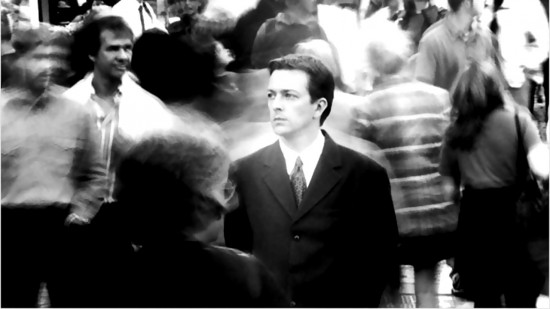 7. Following (1998)Screenplay by Christopher Nolan
7. Following (1998)Screenplay by Christopher Nolan
The director's first narrative film announces the debut of a filmmaker who clearly has a storytelling instinct, and who has devoted time to the logistical complexities of shooting an ambitious project on a shoestring budget. Furthermore, his instincts are recognizably his own. So many of Nolan's tendencies are tipped off here in the story of a casual stalker who links up with a thief with a plan. There's the reliance on exposition, the use of close-ups and inserts as prime building blocks (here a budgetary tactic, later a stylistic one), cross-cutting narratives, and the mechanisms of plans taking precedence over emotion.
The resolution of Following is too conventional to really stand up to the rest of the film; the final revelations are liable to be spotted by audiences long before they're delivered. That weak end game is yet another frequent factor in his films, and something that will hamper many of Nolan's efforts in the future. But there's a raw nerve vibe in Following, and we have to give a nod to the value of seeing a template as distinctly drawn as this one.
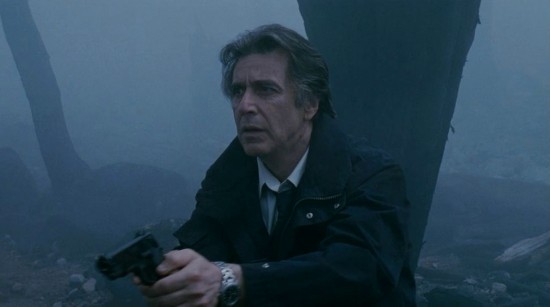 6. Insomnia (2002)Screenplay by Hillary Seitz and Christopher Nolan (uncredited); based on the original screenplay by Nikolaj Frobenius and Erik Skjoldbjærg
6. Insomnia (2002)Screenplay by Hillary Seitz and Christopher Nolan (uncredited); based on the original screenplay by Nikolaj Frobenius and Erik Skjoldbjærg
After working together on Memento, Nolan and cinematographer Wally Pfister developed what would become their signature aesthetic for five more films. And one could easily guess that Nolan's signature tone — chilly, clinical, observant — was set in this depiction of a detective who can't face multiple truths. Insomnia is a huge step up for Nolan in terms of form, but it represents a step back for engagement. Nolan takes to the clockwork thriller mechanism like a bear to salmon fishing, but he feels like he's channeling David Fincher rather than working entirely on his own terms.
The strong supporting cast is dominated by Al Pacino working in "actor" mode. Here Nolan's penchant for close-ups and inserts works against him, by giving him something to lean on rather than pushing Pacino. The villainous turn from Robin Williams — which audiences saw just months before they got to take in his more overtly evil work in One Hour Photo — ironically provides some of the film's warmth by giving us a character who is unpredictable yet oddly familiar. He's also an indicator that there is a wry sense of humor at play. That's something we saw in Following and Memento, but which is often more tightly corralled as Nolan's career goes on.
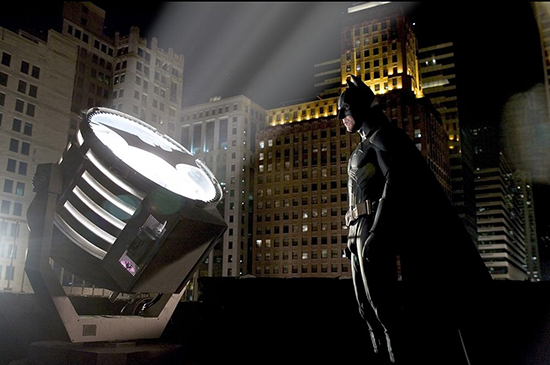 5. Batman Begins (2005)Screenplay by Christopher Nolan and David S. Goyer
5. Batman Begins (2005)Screenplay by Christopher Nolan and David S. Goyer
Looking back now, of course Christopher Nolan's first truly massive movie would be a story of split identities, hidden truths, and psychological demons. (And there's also the matter of bat-symbols embedded in his first two films.) Nolan found his own way in to the story of a figure who denies all believability: to explore Bruce Wayne's double life he focused on the shades of truth that layer into any one identity while focusing on the nexus between justice, fear and power to forge the bedrock for a classic superhero story. The attention to dark detail that made Insomnia compelling on a technical level is here bent to the service of a larger-than-life figure, and Nolan gets to explore tangential genres such as action and even horror as he refines his skill set.
From the beginning the director seems significantly in tune with the material. This vision is indebted to Frank Miller's Batman, and the Batman of Denny O'Neil and Neal Adams. But film is synthesis, and this Batman meshes together many previous ideas with Nolan and David Goyer's own priorities to craft a unique approach to the hero. Through the occasional misguided casting choice and the indulgence of some lumpy prequel ideas (such as Gordon meeting young Bruce Wayne and the origin of the bat-symbol) Nolan crafts an action thriller that was subtly but distinctly unlike any of the superhero films that went before it.
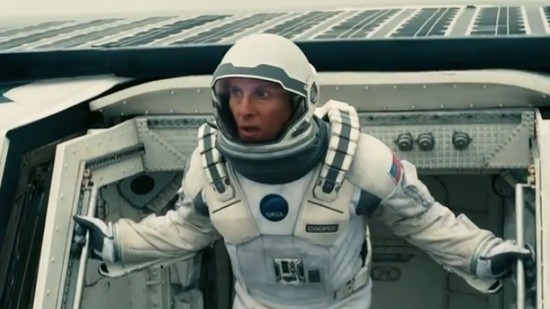 4. Interstellar (2014)Screenplay by Christopher Nolan and Jonathan Nolan
4. Interstellar (2014)Screenplay by Christopher Nolan and Jonathan Nolan
Nolan's ambitions reach toward the edges of known space as he attempts to reconcile cynicism about human nature with dual hopes for scientific achievement and our own ability to connect and communicate. In reality those hopes are one, as Interstellar directly posits the notion that our outreach into deep understanding of the natural universe can build a web of connections between people. That's a lot to chew on, and Interstellar is a sprawling, messy, multilayered adventure in which every other step feels like a misstep. The visions of outer space and other planets are stunning on a grand scale, but for every breathtaking vista there is a clunky stretch of dialogue or a flatly unbelievable interaction between characters. Interstellar features name actors even in smallish roles and some are flatly miscast, making some of the awkward scenes even more distant.
And yet Nolan is clearly passionate about the ideas at play, and Interstellar is never less than firmly, passionately committed to its own ideas. That dedication is compelling, even when the method of articulating it draws groans. Nolan's vision of our immediate future is overtly political, and he seems far more compelled by that political spirit than in the Batman films. We've often wanted more passion out of the director — you'll see that reflected throughout this feature — but ironically when we do get it here, the effect is overbearing and unfocused. Here, passion acts as a prism that scatters components of the film rather than a lens to focus them. At this moment, at least, with only 24 hours to reflect upon Interstellar as opposed to the years we've had to think about the rest of his work, I'll prioritize the hopes and ambition of Interstellar over its shortcomings.
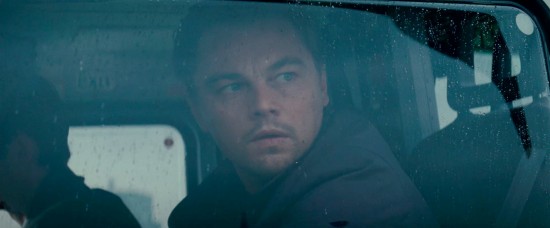 3. Inception (2010)Screenplay by Christopher Nolan
3. Inception (2010)Screenplay by Christopher Nolan
The ne plus ultra of Christopher Nolan movies, Inception is a galaxy of the directors interests and tics all spinning together as one giant mass: the troubled middle-aged white guy protagonist, the dead wife, the murky past and web of half-truths, the puzzle structure, the overt technical spectacle. Riding high on the success of The Dark Knight, Nolan bet his cred on a decidedly atypical dreamscape structured more according to the hierarchical logic and action aesthetics of games than of dream journals. Surprisingly, audiences met Nolan on his own terms.
Originally conceived in 2002, this story of dream-invader Cobb and his painful, symbol-littered process of coming to terms with his role in his wife's death is an ultra-big budget companion to Memento. It's a concept one imagines Nolan constantly returning to over the years, kneading it over and over like Cobb spinning the totem top belonging to his late wife.
With Leonardo DiCaprio, Marion Cotillard and Ellen Page in the cast Inception has a seductive star power to that draws the audience into its nested machinations. But whether due to the long development period, or simply to the mode in which Nolan was working after The Dark Knight, Inception is polished and mechanical, especially in its third act. When it strives to be raw, to bring us into Cobb's own frayed nervous system, the strain shows. The film often demands a leap of faith, but we know there's a trick. Inception is at its best when characters are creating and explaining imaginary worlds, and the scale and nature of its spectacle makes it unlike other films littering the field of too-similar CG blockbusters. If it flowed with a drive of passion to match its most heady ideas and bravura cross-cut action scenes, it might be unparalleled. As is, there's still nothing quite like it.
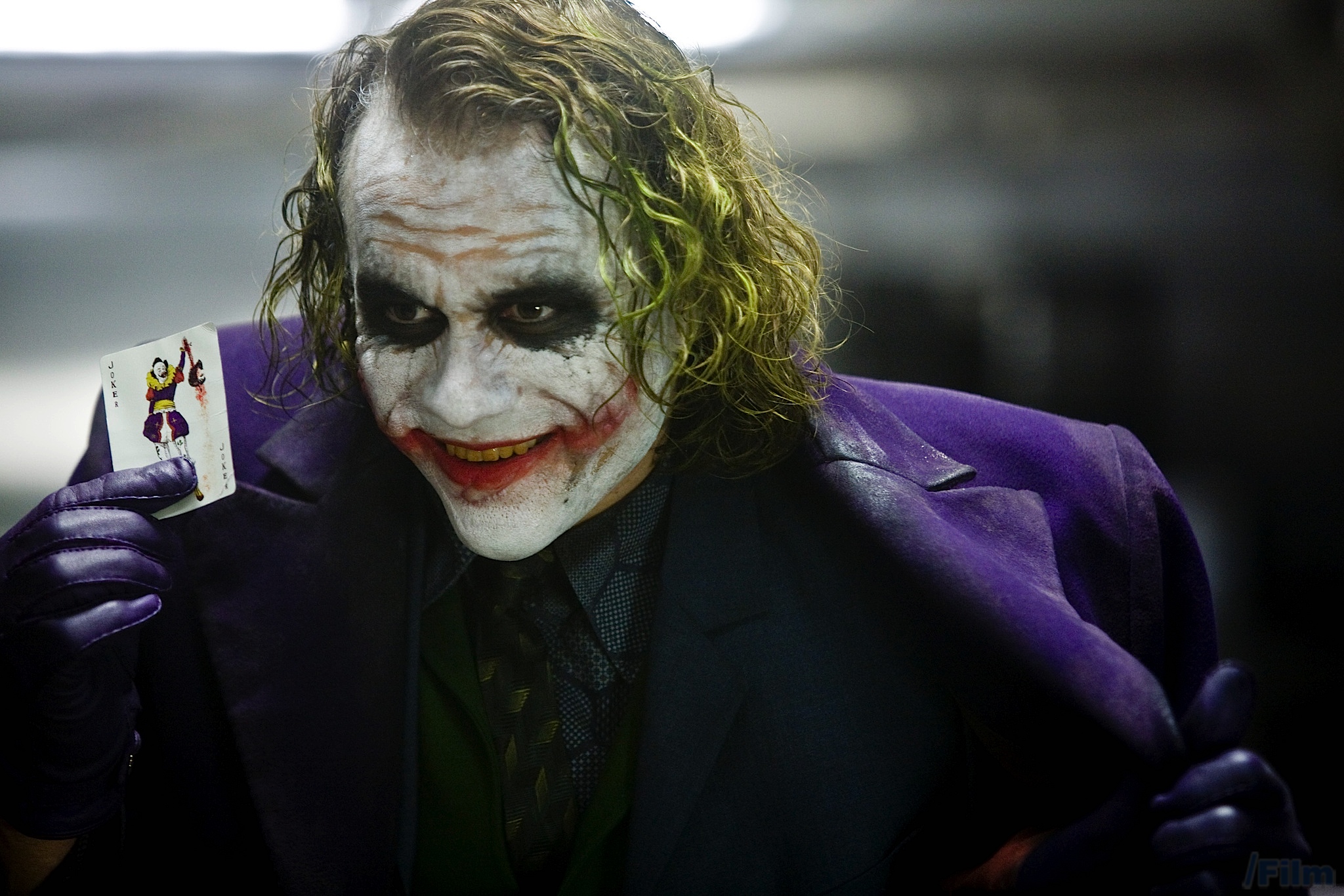
2. The Dark Knight (2008)Screenplay by Christopher Nolan and Jonathan Nolan, story by Christopher Nolan and David S. Goyer
This movie belongs to Heath Ledger. His mesmerizing, shockingly grotesque performance promotes the Joker from general of Batman's rogues gallery into the pantheon of all-time screen villains. It's impossible to look away from Ledger; his eyes burn with a warped, demented humanity, his wormlike tongue is animated by a bleak spirit. Ledger gives the Joker s hunched, broken gait reminiscent not of a mythic character, but of that vaguely threatening weirdo we've all crossed the street to avoid. Many superheroes and villains are outsized past any recognizable experience but we've all run across someone that is just a bit like the Joker.
Christopher Nolan and everyone else involved in The Dark Knight rises to meet Ledger's standard. This film rolls forward with a stately determination and an unusual clarity. Divested of the burden of origin stories, Nolan & Co. are free to dig in, and they sculpt a many-faceted vision of justice and responsibility. Questions of identity and honesty are expanded to the level of societal and political issues.
Wally Pfister's cinematography exhibits a patience unusual for films of this type. His steady gaze shows us a vision of Gotham City that is stark and imposing, free of even the light embellishments of Batman Begins. Shaded in by the score, all horn swells and atonal soundscapes, this Gotham is sony and alienating; when the peanut gallery exclaims "things are worse than ever!" in Harvey Dent's press conference, we believe it. Superhero films often aspire to mythic status, but the grim grandeur of The Dark Knight is unique.
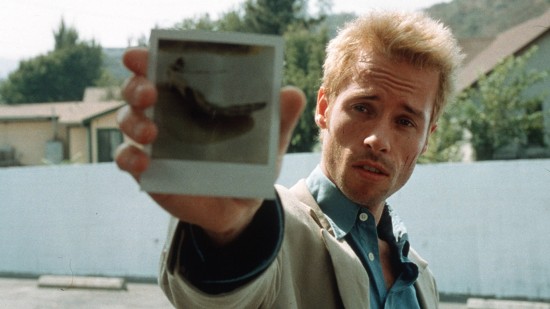 1. Memento (2000)Screenplay by Christopher Nolan based on a short story by Jonathan Nolan
1. Memento (2000)Screenplay by Christopher Nolan based on a short story by Jonathan Nolan
Christopher Nolan's second film is still his most affecting. The superficially convoluted daylight noir plot offers something we haven't seen before, but this movie has a beating heart and an inquisitive spirit. What lies do we tell ourselves, and how do we convince ourselves that our actions are right? Memento is a wonderful marriage of material, cast, and technique. Armed with a proper budget Nolan could use storytelling elements that weren't available on his first film (such as guns and cars) but he didn't have enough money to dally with huge spectacle.
The reliance on inserts Nolan developed for Following is developed to work as illustrations of Lenny's fragmented memory and personality. The film's narrative is as broken-up and selective as Lenny is himself, and in the end that structure reinforces the film's ideas.
Memento is a feat of screenwriting that provokes the audience into hanging on a single line. (When did Lenny write "don't believe his lies" on Teddy's photo?) Moments of black comedy ("My wife..." / "That's sweet." / "...dying") underline our awareness of the plot's arch tension as they bring us closer to the characters. And while there's little more sexual heat here than in any other Nolan picture, the confrontations between Natalie (Carrie-Anne Moss) and Lenny have an energy that is all too often lacking in his movies. That's part of the film's heat, and together with Guy Pearce's riveting performance that energy makes Memento stand alone.
